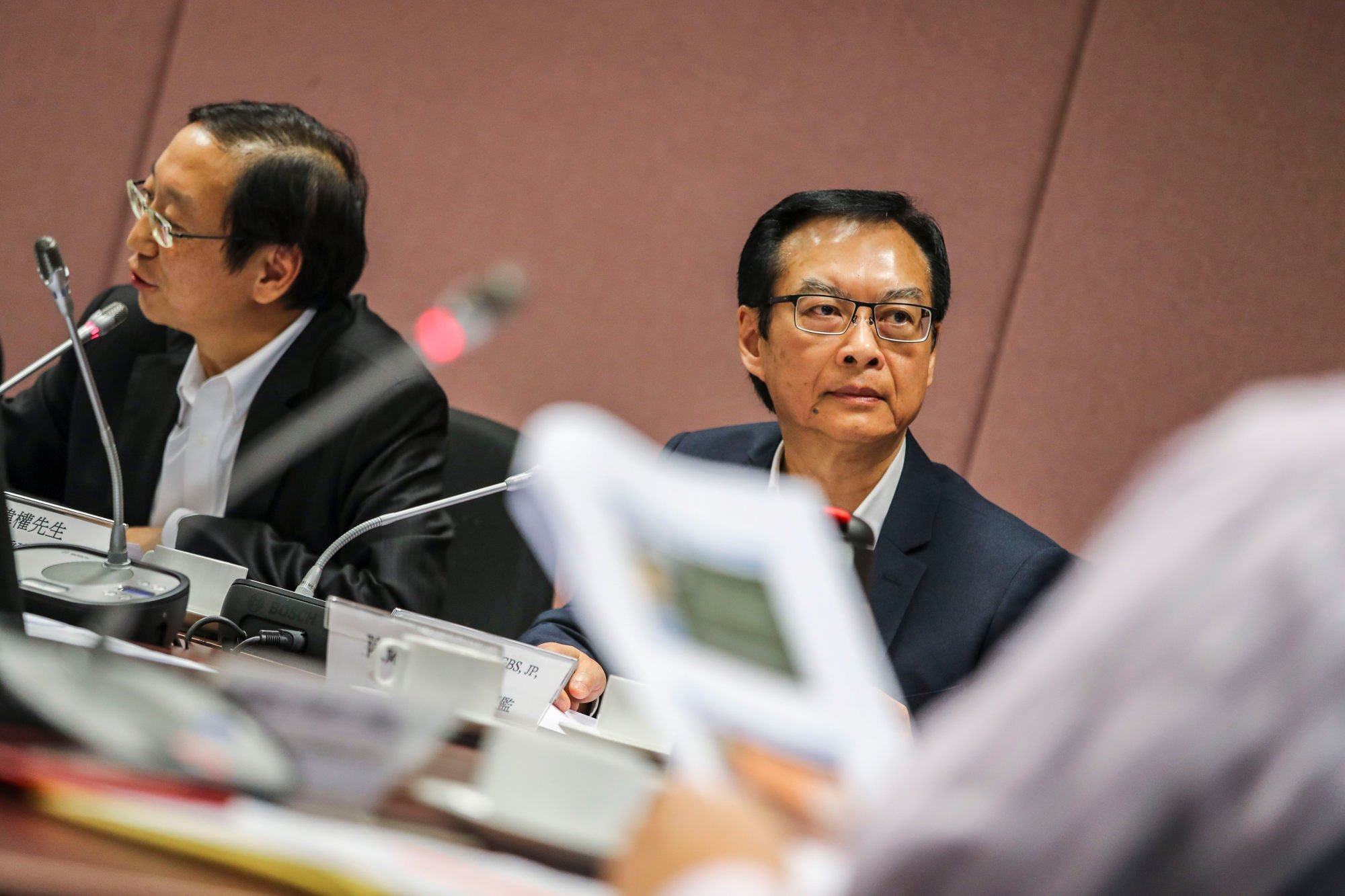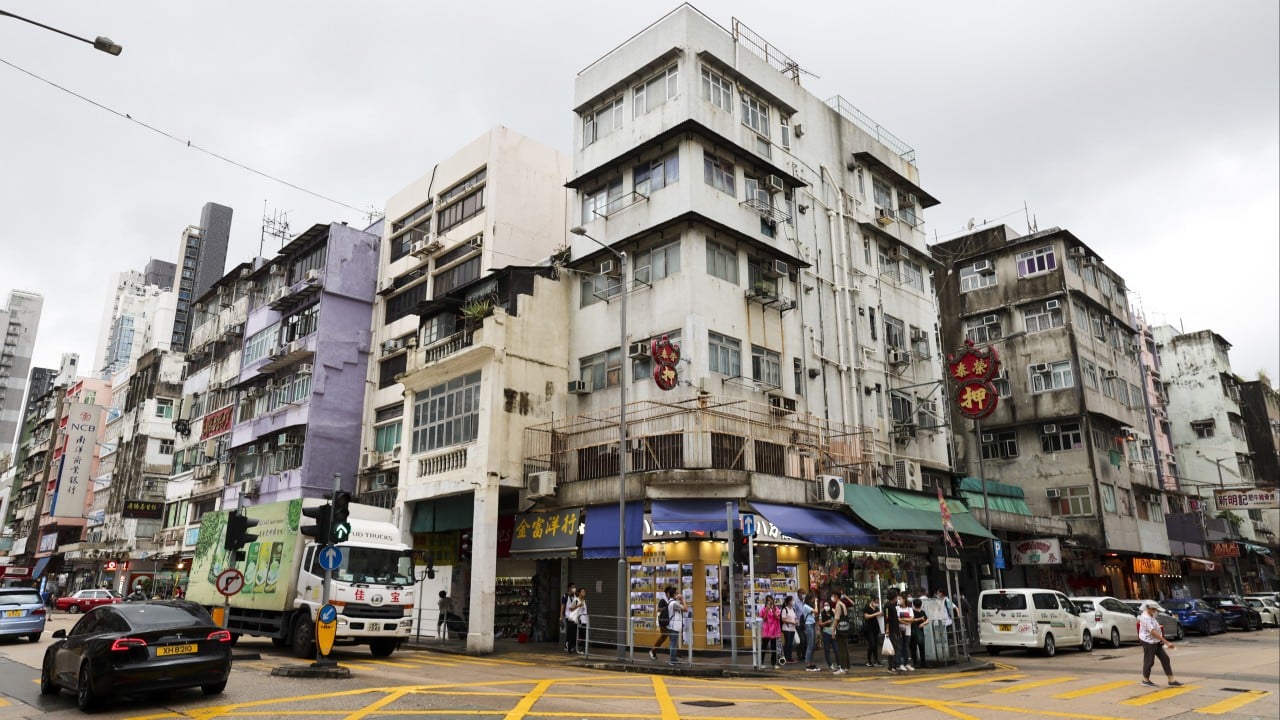Hong Kong’s cash-strapped Urban Renewal Authority is reaching out to investors in Singapore and Macau for financial help after recording a HK$3.9 billion (US$499 million) annual deficit, its second year of loss in a row.
The authority’s head also said on Monday it would issue bonds to raise funds and had shared the plan and details of major projects with local and Macau investors, with a Singapore trip planned on Tuesday to continue the outreach.
Authority managing director Wai Chi-sing said the statutory body had not reached out to foreign investors in a long time, adding: “Foreign investors may not be aware of the work carried out by the authority now, as the authority has not issued bonds for a long time.”
The authority issued bonds for the first time in 2009.
Wai explained the authority’s promotional efforts were targeting investors from the Asia-Pacific region because the bonds would be issued in Hong Kong dollars.
The HK$3.9 billion loss recorded for the 2023-24 financial year consists of a HK$3.1 billion provision for projects started in the past which could be devalued, while the remaining HK$830 million was an operational deficit.
Last year, the URA incurred a HK$1.5 billion deficit for a project it put up for tender in Kowloon City. The body is also planning to launch redevelopment projects in that same district, Sai Ying Pun and To Kwa Wan this financial year and the next.
The recent downturn in Hong Kong’s property market led to the URA recording a deficit of HK$3.5 billion in the 2022-23 financial year, its first loss in almost a decade.
The situation has been aggravated by the fact that the pool of private buildings 50 years old or more in Hong Kong rises by about 560 a year and is expected to total more than 14,800 by 2031, according to government projections.
Financial Secretary Paul Chan Mo-po also raised the URA’s borrowing limit from HK$6 billion to HK$25 billion last year and it currently enjoys a credit rating of AA+.
Wai said the authority would promote the city’s redevelopments, including a mega project in Kwun Tong town centre, slated to yield 1,750 flats.

The addition of residential elements to the commercial project in Kwun Tong came after a tender for the project received only one bid last February. The offering was eventually withdrawn.
Wai said that the authority had put significant effort into communicating with investors and modifying the project’s components and tendering rules.
“The tender of the project will be launched [again] this year or the beginning of next year, and we are confident that it will not be withdrawn this time,” he added.
Authority chairman Chow Chung-kong expressed optimism about the redevelopment project in Kwun Tong, adding the authority had “modified some of the conditions of the tender this time.”
Professor Terence Chong Tai-leung, the executive director of the Chinese University of Hong Kong’s Lau Chor Tak Institute of Global Economics and Finance, said he believed that the bonds issuance by the authority would arouse the interests of investors.
“If the interest rate of the bond reaches 4 per cent or above, it must attract investors,” Chong said.
Bonds could guarantee a stable return amid a difficult economic environment, he noted.
“I believe that even local investors would be interested and would reach the target issuance size of the bonds,” Chong said.
Lawmaker Vincent Cheng Wing-shun also agreed that the bonds issuance would be attractive as the value of urban redevelopment was very high.
The URA earlier called for a review of the compensation mechanism, under which owner-occupiers of acquired flats are paid an amount equivalent to the price of a comparable seven-year-old flat in the same district.
The move was part of an effort to ensure the sustainability of the city’s renewal efforts and the authority’s financial health.
But the idea was not welcomed by the development chief, with industry figures asking for incentives to encourage private participation in urban renewal instead.
The Legislative Council is expected to discuss the annual results and future works of the authority next Monday.


